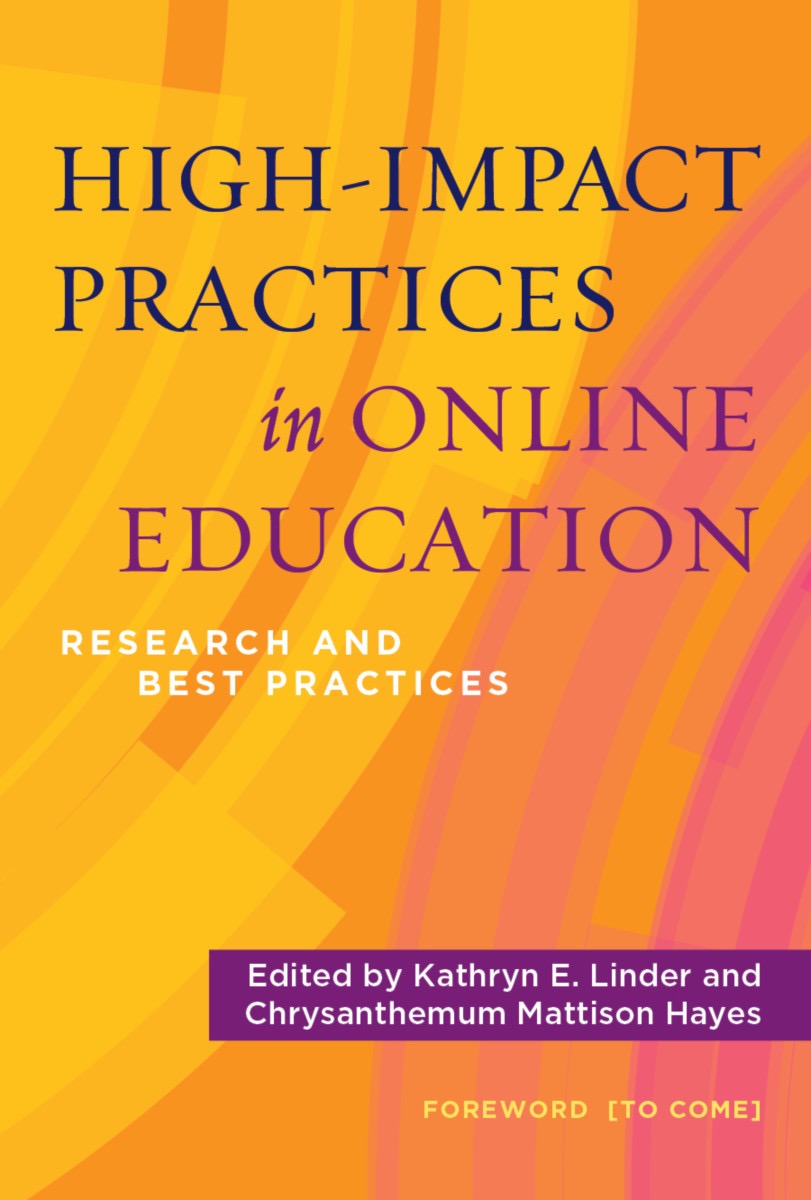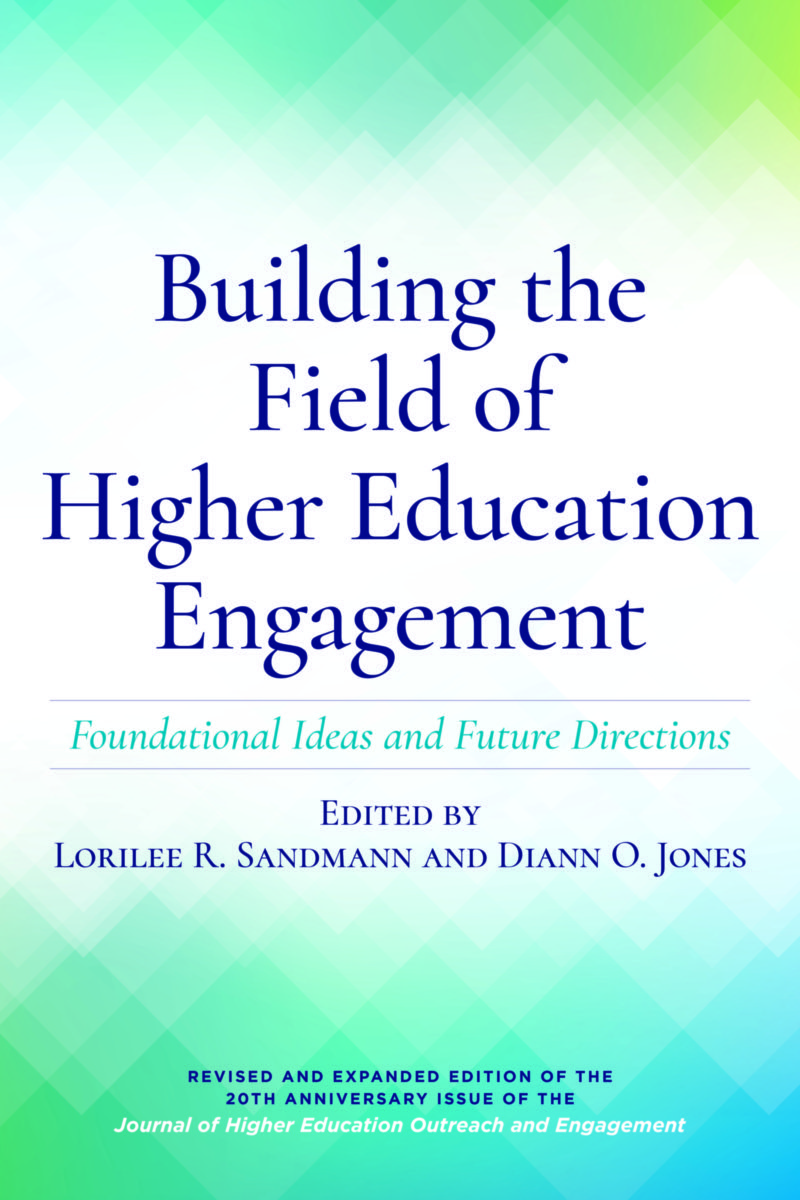teaching
Select an item by clicking its checkbox
Date Reviewed: April 15, 2020
What are the potential benefits of high-impact practices (HIPs) for online education? That is the key question addressed in this well-researched collection of essays. Whether the reader is new to innovative theory and techniques in online education or an experienced distance educator, they will find a valuable resource here. Each contributor provides a helpful short list of key takeaways and a solid bibliography at the end of their chapter. The introduction and conclusion by the editors, Linder and Hayes, set the framework for the discussion and aptly describe possible future directions for teaching online, blended, or face-to-face courses.
High-Impact Practices in Online Education reads like a dynamic conversation on research with practical recommendations for how to strengthen a variety of teaching contexts. Each topic selected for inclusion covers a specific high-impact educational practice. That list was largely identified in 2008 by George D. Kuh as ten critical components of undergraduate education. First-year seminars, learning communities (LCs), writing-intensive courses, and internships were among those featured components. These practices are still considered high-impact, but newer practices, such as ePortfolios, have been added in subsequent years. All have become part of developing educational strategies to impact student retention and graduation rates.
So, where will readers find what they most need in this collection? For some, a particular topic will draw their attention. My suggestion is to resist that impulse. Try, instead, reading the introduction and conclusion before sampling individual chapters. Understanding the context for the conversation about HIPs matters. The research and literature in this emerging field has been somewhat scattered, but a representative sample is nicely gathered and incorporated into this single volume.
There are no chapters specifically on theological education or religious studies. That said, there is much of worth to educators in those disciplines. For example, June Griffin’s “Writing-Intensive Classes” or Pamela D. Pike’s “Internships” speak directly to theological and religious educators. The same can be said about Stefanie Buck’s “High Impact Practices and Library and Information Resources.” No doubt other readers will discover other favorites as well. Remember that any one of these chapters could make a dramatic difference in most teaching and student learning.
Is there one overarching idea offered as a takeaway? Yes, and it is that best practice principles are, in the end, more important than modalities. That is a valuable point to have in mind as exciting new technologies continue to emerge.
Date Reviewed: April 15, 2020
Building the Field of Higher Education Engagement: Foundational Ideas and Future Directions presents twelve landmark articles from 1996-2012 that contributed significantly to the emergence of the field of engagement. Along with the articles, the book presents updated commentaries and responses by the original authors or noted scholars to the questions they proposed. The format of this publication is thoughtful as each chapter presents conversation-provoking questions about engagement across academic disciplines. In addition, Chapter 13 is a prospective look into the future. Nine authors provide their insights to what engagement may look like in the next two decades.
This book is valuable to those in the specific field of religious education as it strives to rethink the work of the academy. Lorilee Sandmann states that colleges and universities remain one of the greatest hopes for intellectual and civic progress because they search for answers in light of pressing problems (xiii). Furthermore, higher education in its highest ideals is committed to the scholarship of engagement. She defines engaged scholarship as a mutual relationship between academia and the community that leaves a positive legacy for all partners (xiv, 196). These concepts challenge established notions about higher education.
First, this book examines the most foundational values of education. Engagement should be built from these values and not the expectation to do research and achieve tenure. As a result this creates ripples in the culture and expectations of the academy so that a new or revised model for higher education may emerge.
Second, this book challenges the way educators see themselves and how they are to engage the community. The community has come to view them as ivory tower elites. Conversely, this volume challenges institutions and educators to participate in outreach to the community at large. The text provides several interdisciplinary examples of outreach. It is important because it generates conversations about the role of faculty and their role in outreach. This is a valuable contribution as the book also gives suggestions on how engagement and outreach can be measured so as to be included in the tenure process.
Another valuable idea is the notion that knowledge is now non-linear. It was expected that the academy would study, research, and provide solutions for the world. The consequence is that the academy does not answer the questions the community is asking. In a non-linear world, the community has knowledge. The academy must necessarily be more engaged in the world that surrounds it. Through interdisciplinary dialogue, the text provides valuable insight into these conversations.
For theological educators this is an important book because it provides language to understand the complex relationships between the community and the academy; as well as that between faculty and administration. It causes the reader to reimagine the requirements of tenure and the meaning of higher education in a fast-changing cultural milieu. This book conceptualizes the changes in the work of the academy so that one is better prepared to engage an institution’s culture and values so that it may be more true to education’s highest ideals and values.
The notion that learning is not an outcome of teaching is a challenging conundrum to those who teach. Perhaps for two reasons, first, it’s counter intuitive, and second, it begs the question, “Well then what am I teaching for if not to bring about learning?!” While teaching and learning ...
With the possible exception of Drew University Theological School where I was on faculty for twenty years, the Wabash Center has been the most influential institution to my vocational formation. I participated in my first Wabash workshop in 2000 and received my first grant in 2001. Since then, I have worked as ...
There’s a term for the anxiety many novice instructors feel about the online teaching-learning environment. It’s called “transactional distance.” This relates to the dissonance of feeling “distant” or disconnected from students when one is used to only the experience of the face-to-face classroom experience. Tisha Bender, in Discussion-Based ...



